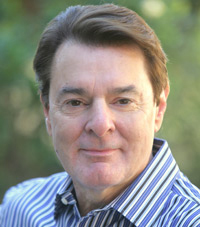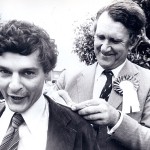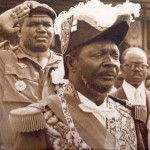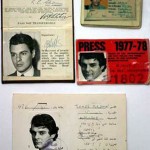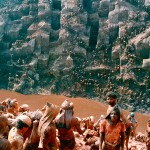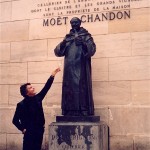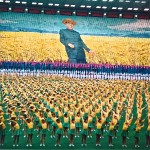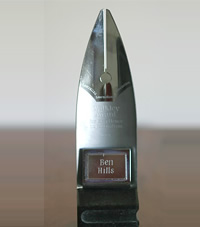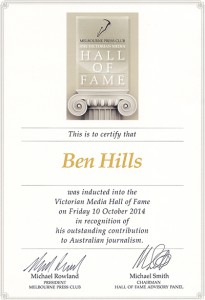Ben spent 30 years working for Australia’s two leading broadsheets – The Age in Melbourne and the Sydney Morning Herald in Sydney. He was a line producer for the Australian 60 Minutes programme for four years, and has worked as a foreign correspondent in more than 60 countries. Ben was born in Grassington Yorkshire, and educated at various private and government schools in England, on the Continent, and in Australia after the family migrated in 1959. He attended Queensland University, then took a job as a cadet reporter on the Stanthorpe Border Post. He subsequently worked for papers in Forbes and Goulburn NSW and Hobart, Tasmania, before joining The Age in Melbourne in 1969 when it was led by the late, great Graham Perkin. He led The Age Insight investigative team, which had a number of notable scoops including exposing corruption in Housing Commission land deals which eventually contributed to the downfall of the Hamer/Thompson Liberal Government, and the “Loans Affair” expose which led to the sacking of the Whitlam Labor government in 1975.
In the mid-1970s based in London but principally covering the Middle East and Africa as a “roving correspondent” for the Melbourne Age. He reported on civil wars in the Lebanon, the Sahara, Liberia, Ethiopia, and Rhodesia (now Zimbabwe), as well as Northern Ireland and Iceland (the so-called Cod Wars). The stories he covered in Africa included the coronation of the Emperor Bokassa in the Central African Empire, ivory-smuggling in Kenya, the campaign to eradicate “river blindness” in Upper Volta, disasters involving oil tankers registered in Liberia, a political show-trial in Zanzibar, and the independence movements in Rhodesia and Djibouti. In the Middle East and North Africa he covered elections in Israel, and reported from Palestinian refugee-camps in Lebanon, and from Egypt, Syria and Colonel Ghaddafi’s Libya.
In the early 1980’s Ben spent two years in Hong Kong as publisher of Syme Media Enterprises, a small magazine-publishing business owned by The Age, traveling extensively around Asia. When he returned to Melbourne he was appointed an assistant editor of the Age, but left not long afterwards to return to reporting – as a producer for the Australian 60 Minutes current affairs programme. In four years with the programme Ben produced for the original team of Jana Wendt, George Negus, Ian Leslie and Ray Martin under the leadership of the programme’s founding executive producer Gerald Stone. It involved extensive assignments overseas : exposing a racket in stolen babies in Taiwan, various killer drugs and medical products released in the US such as the Dalkon Shield, gold-mining in Brazil, the first TV reporting on AIDS in Australia, issues involving Australia’s Aboriginal population, live sheep exports, and the missile defence systems.
From 1992 to 1995 Ben was Japan correspondent for the Sydney Morning Herald and The Age, also covering issues and events in China, Siberia, and North and South Korea. It was a momentous time in Japan : the 50th anniversary commemorations at Hiroshima and Nagasaki marking the end of World War II, the aum shinrikyo sarin gas attack on the Tokyo subway, the Kobe earthquake, the election of the first non-LDP government. As well, Ben covered a range of social issues affecting Japan : the advent of unemployment, women’s issues, the battle for compensation by minorities such as the victims of the Minamata pollution and wartime slave prostitutes, whaling and other conservation issues. He covered these experiences in his second book, Japan-Behind the Lines (Hodder Headline).
From the late 1980s Ben specialised in exposing business and political corruption for the Sydney Morning Herald and (for two years) the Melbourne Herald. His Walkley award was for The Big Steal, a three-continent investigation of a $70 million sting on the Swiss Banking Corporation. His investigations have included revealing corruption at the Tricontinental Bank in Victoria which led to the bank’s collapse and the jailing of its managing director, infiltrating the Raelian religious cult, and exposing Exxon’s global strategies for avoiding legal liability for industrial disasters.For almost 20 years, Ben has campaigned against the asbestos industry, particularly the major Australian producer CSR, and the region’s largest manufacturer, James Hardie Ltd. His first book was an account of the battle for justice by victims of CSR’s Wittenoom asbestos mine in Western Australia. His most recent contribution was an account of the James Hardie corporation’s attempt to avoid a $1.5 billion liability to its victims around the world (International Journal of Occupational and Environmental Health, May 2005).
Walkey Award winner
Ben won this Walkley Award – Australia’s equivalent of the Pulitzer Prize – in 1991 for investigative journalism.
Among other awards, he was highly commended in the Graham Perkin Award for Australian journalist of the year.
More recently his book Breaking News – the Golden Age of Graham Perkin won an Alex Buzo Prize for excellence in research, was long-listed for the Walkley Awards and short-listed for the 2010 awards by the Prime Minister and the Premiers of NSW and WA.
Media Hall of Fame Inductee
In October 2014 Ben became one of only 81 journalists in the history of newspapers in Victoria to be inducted into the Media Hall of Fame for his “outstanding contribution to Australian journalism. They include such diverse legends of journalism as Keith Murdoch (Rupert’s father, who alerted the world to the Gallipoli disaster), Wilfred Burchett (the first journalist to report from Hiroshima after the nuclear attack), Alfred Deakin (better known as the Father of Federation, but who also covered the hanging of Ned Kelly for The Age) and the author Cyril Pearl.
The 31 journalists inducted in 2014 included the political correspondents Laurie Oakes and Michelle Grattan, the cartoonist Ron Tandberg, radio personalities Phillip Adams and Neil Mitchell, TV journalist Jana Wendt, business commentator Alan Kohler, and the author and historian Les Carlyon, The guest of honour was News Corporation chief Robert Thomson, who was also inducted. The citation says that they “… helped shape the history of their organisation, their genre, their profession, city, state, nation and, in some cases, the world.”
For a full list of members of the Hall of Fame see www.melbournepressclub.com. A permanent exhibition of the Hall of Fame will be installed at the State Library of Victoria.
Michael Smith, former editor of The Age and chairman of the Hall of Fame advisory panel, pays tribute to Ben.
Michael Rowland, President of the Melbourne Press Club, presents Ben with his award.
Favourites
Ben Hills nominated his favourite books about journalists and journalism for The Week magazine:
The Making of a Muckraker - Jessica Mitford
(Quartet Books ₤2.95)
You have to admire the gall of the “red sheep” of the mad, bad Mitford family who begins this feisty primer on investigative journalism with a stolen quotation: “The only qualities essential for real success in journalism are ratlike cunning, a plausible manner … a little literary ability … (and) the capacity to steal other people’s ideas and phrases.”(The late, great Nicholas Tomalin of London’s Sunday Times said it first.)
The Powers That Be - David Halberstam
America’s finest journalist’s definitive and exhaustive (it took him seven years to write) account of the rise of the great American media dynasties of the 20th century — CBS, Time, the Los Angeles Times and the Washington Post — and the power they wielded over successive US governments. What a pity he died before he could document their fall in the 21st.
Scoop - Evelyn Waugh
(Back Bay Books $US14.99)
The celebrated novelist’s funniest book, which follows the adventures of a mild-mannered country diarist when he is accidentally assigned to cover a war in Abyssinia. Beneath the slapstick: a caustic satire on the barons of Fleet Street and their gung-ho foreign correspondents.
Paper Tigers - Nicholas Coleridge
(Birch Lane Press $US24.95)
Brilliant and revealing portraits of and interviews with 25 of the world’s Press barons at the height of their power — the Sulzbergers of The New York Times, the Grahams of the Washington Post and Australia’s Fairfaxes included. There’s an ominous end-of-empire note as one brazen entrepreneur describes his formula for success: 1. Buy newspaper 2. Cut staff 3. Cut quality 4. Cut objectivity 5. Hike advertising rates.
The Press - A.J. Leibling
(Pantheon Books $US6.95)
The doyen of American correspondents and critics muses on the media in beautifully-crafted essays originally published in the New Yorker. You have to stand in awe of the man who was scooped on the liberation of Paris: while Hemingway claimed he was riding a tank down the Avenue des Champs Élysées Leibling was entertaining a grateful Parisian demimondaine in bed.
My Paper Chase: True Stories of Vanished Times - (Sir) Harold Evans
(Little, Brown £25)
In the 1960s and 1970s — before Rupert Murdoch defenestrated him — Evans’s London Sunday Times was the place every self-respecting reporter in the world would have given his eye-teeth to work. Its exposeés (think the baby-deforming drug thalidomide) brought corporations to their knees and made governments quake. His scintillating new autobiography explains how and why.
